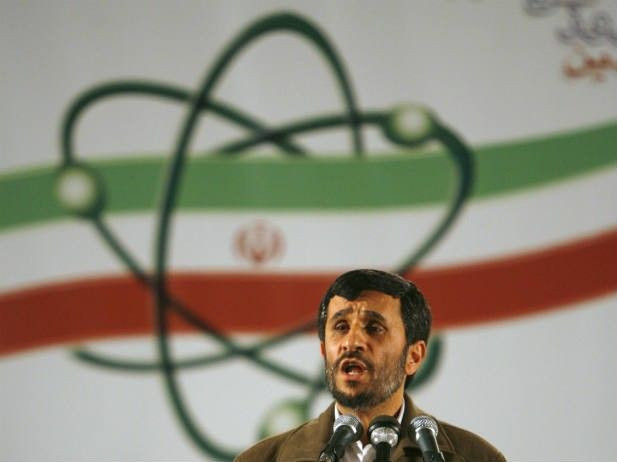Bomb Iran Or Not? Israeli Nuclear Scientist Says More Sanctions Could Work - For Now

An old Jewish joke says that if you ask five rabbis the same question, you'll get six opinions. Ephraim Asculai agrees. "Israel is a democracy," he said during a conference call from Israel on Thursday. "In a democracy, everyone has a point of view. Here, everyone has two points of view."
A nuclear scientist, former employee of the International Atomic Energy Agency and former member of the Israel Atomic Energy Commission for more than 40 years, Asculai addressed questions on the strife between Israel, Iran and the U.S. and made a case for stronger sanctions that would "hurt the pride" of Iran's government.
"I think there is complete agreement between the two countries [the U.S. and Israel] on the situation in Iran," said Asculai, on the line from Tel Aviv. "It's very serious there. Iran is enriching uranium up to 25 percent, and, from there, it's a short way to 90 percent enrichment, which is the introduction to nuclear weapons."
The disagreement, of course, is what to do about an Iran that is fast becoming nuclear. "Israel feels quite anxious about the Iranian nuclear project," Asculai said. "The U.S. knows this and admits it. The difference is simply that the U.S. thinks there is still time for a diplomatic solution. Israel feels the time is running out."
Part of the problem, Asculai said, were vagaries on the part of the U.S. as to what exactly its "red line" would be on Iran's nuclear program. "The U.S. has said it would view it as a serious thing if Iran broke out," he said, referring to a situation where Iran would have enough enriched uranium to start producing weapons. "Israel thinks this isn't a well-defined red line," Asculai said. "It would take time before the facts are known [as to Iran's nuclear state]. You have to define the actions that would cross the red line."
The time to complete a breakout, according to Asculai, is 8 to 10 months. He estimated that Iran could potentially have an explosive device within a year, and three to four devices within two years. But given what the world knows about Iran's seemingly slow rate of progress, Asculai said the Iranians' scientific and technological competence should not be underestimated.
"I think they are very technically competent," Asculai said. "They probably didn't get the best machinery from the Pakistanis, and it took them a long time to master the techniques and the technology. And I imagined the world's efforts in preventing them from moving forward have some effect." But the slow rate at which they started developing the program shouldn't fool anyone, he said.
Asculai said that a military strike would probably not stop the Iranians, but that wasn't stopping the Israelis from hoping. "I think no one here and no one in the U.S. would do anything but delay the Iranian program," he said. "But there are those who say even a short delay is OK, and some people take encouragement from the old fact that in 1981, Israel bombed the Iraqi reactor, and the Iraqi nuclear program still hasn't manufactured a weapon."
Within Israel, Asculai said, there is "a serious public debate" about what should be done, with opinions as divergent as they are in the U.S. "The press is saying Israel should protect its interests," he said. "There are others who seriously oppose any military action. You can find all spectrum of opinions."
How is this to end? Asculai noted that in Jewish tradition, prophets are either little kids or fools. "I'm not so young, and I hope I'm not a fool," he joked, but he noted Thursday's meeting of the Board of Governors of the International Atomic Energy Agency would most likely be tense. "There will be a very serious debate concerning Iran," he said. "They cannot mandate any action, but today things are really going to end in a serious resolution, which will condemn Iran and its program."
Asculai also touched on the current sanctions on Iran and said he felt they weren't enough. "I don't believe economic sanctions will do the job," he said. "Other sanctions must be imposed -- they have to include things that will have an effect on the pride of Iranians and their prestige and on their willingness to be a power in the world. Once you hit the pride, it will have an effect. Humiliation is something they cannot take."
"I would guess," he said hesitating, "that by next spring, nothing dramatic will have happened. I don't think there will be military action on either side. But Iran will still go on amassing huge quantities of enriched uranium."
© Copyright IBTimes 2024. All rights reserved.






















